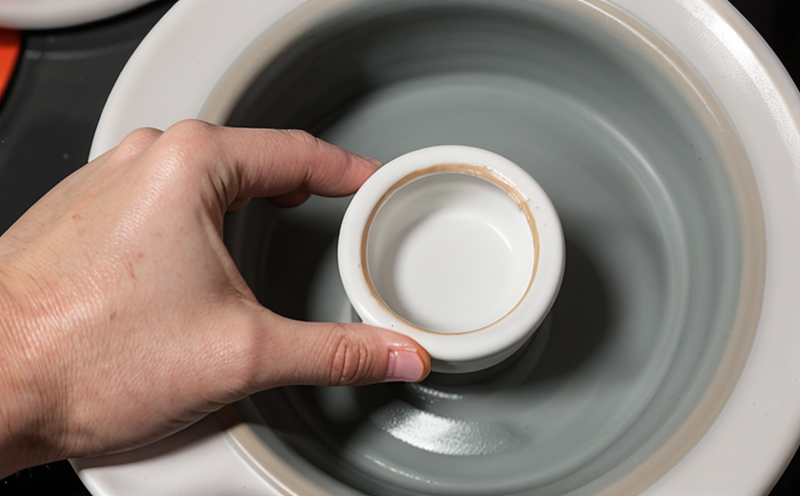ISO 14704 Flexural Strength Testing of Nanostructured Ceramics
The ISO 14704 standard provides a method for determining the flexural strength of nanostructured ceramics, which is crucial in understanding their mechanical properties. This test is essential for quality managers and compliance officers to ensure product integrity, while R&D engineers can leverage it for innovation. The flexural strength test evaluates how much stress a material can withstand before breaking under bending stress. Nanostructured ceramics are known for their unique combination of hardness, toughness, and high-temperature stability.
The process involves preparing the specimen by cutting or grinding it into rectangular prisms with precise dimensions as per ISO 14704 guidelines. The specimens must have a specific length-to-width ratio to ensure accurate measurement of flexural strength. Once prepared, the samples are conditioned in an oven at specified temperatures and humidities for a designated period.
The test is conducted on a universal testing machine (UTM) equipped with appropriate grips and fixtures that can apply uniaxial compressive loads perpendicular to the specimen's long axis. The UTM applies increasing load until failure occurs, recording the maximum load at which fracture happens. This value corresponds directly to the flexural strength of the material.
The testing parameters include loading rate, span distance between support points, and environmental conditions during testing. These factors significantly influence the accuracy and reproducibility of results. Environmental control is critical as any deviation in temperature or humidity could lead to erroneous readings.
Understanding the flexural strength allows manufacturers to optimize product design and performance. For instance, it helps determine optimal grain size distribution for nanostructured ceramics used in aerospace applications where lightweight yet robust materials are required. Additionally, this test aids quality assurance teams by providing objective data points that indicate compliance with industry standards or internal specifications.
Compliance officers can use these results to ensure their products meet regulatory requirements without compromising on quality or performance. Moreover, R&D engineers benefit from knowing the flexural strength early in development stages so they can make informed decisions about material selection and processing methods.
In summary, ISO 14704 flexural strength testing plays a pivotal role in validating the mechanical properties of nanostructured ceramics across various industries including aerospace, automotive, electronics, and construction. Its importance cannot be overstated as it ensures reliability, safety, and longevity of products made from these advanced materials.
- Ensures accurate measurement of flexural strength
- Supports product design optimization
- Facilitates compliance with industry standards
- Aids in quality assurance processes
Why Choose This Test
Selecting the ISO 14704 flexural strength test for nanostructured ceramics offers numerous advantages. Firstly, it provides a standardized approach to measuring mechanical properties, ensuring consistency across different labs and facilities worldwide.
- Standardized methodology ensures consistent results.
- Reproducible tests enhance reliability.
- Achieves higher confidence levels in product performance.
Secondly, this test offers deep insights into the material's structural integrity. By identifying weak points early on, manufacturers can refine their production processes to create stronger components without compromising other attributes like weight or cost.
Lastly, compliance with international standards is essential for global markets. Companies that pass such rigorous tests gain credibility and open doors to new business opportunities abroad.
Customer Impact and Satisfaction
The successful completion of ISO 14704 flexural strength testing contributes significantly to customer satisfaction by delivering high-quality products with guaranteed performance. When customers receive items that meet or exceed expectations, they are more likely to recommend your services or purchase additional products.
This reliability fosters long-term relationships, which is vital for sustainable business growth. Furthermore, satisfied clients often share positive feedback, enhancing brand reputation and attracting new prospects through word-of-mouth advertising.
Competitive Advantage and Market Impact
Offering ISO 14704 flexural strength testing gives your company a competitive edge in the market. It demonstrates expertise in handling complex materials, setting you apart from competitors who may lack similar capabilities.
Achieving compliance with international standards can open up new markets and opportunities for collaboration. As more industries adopt stricter quality controls, having these certifications becomes increasingly valuable.





